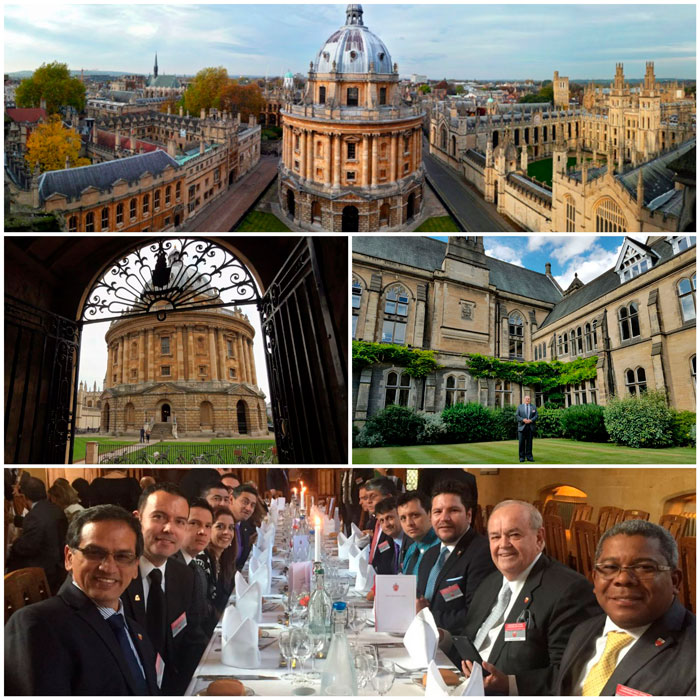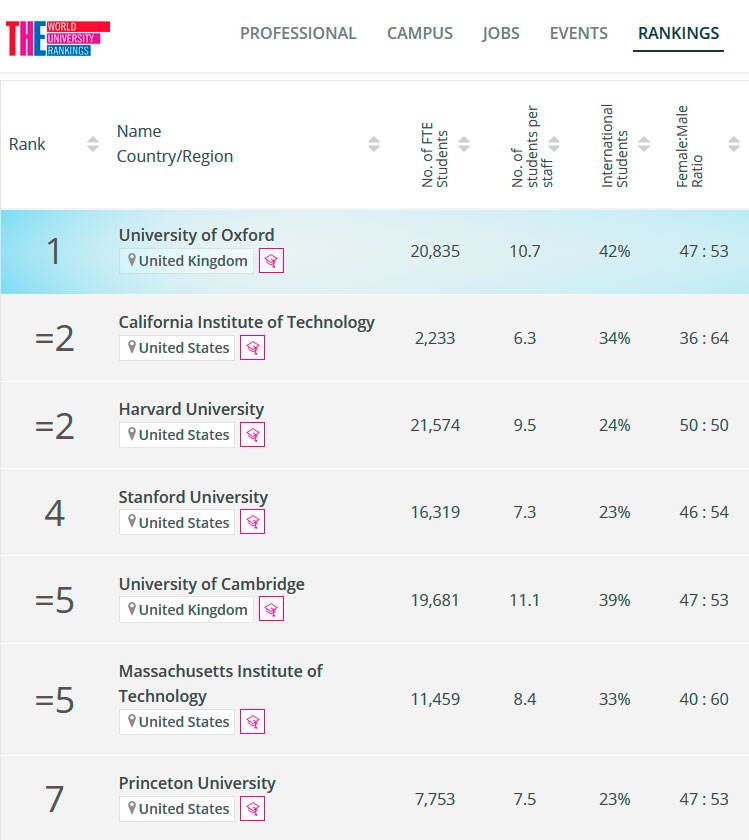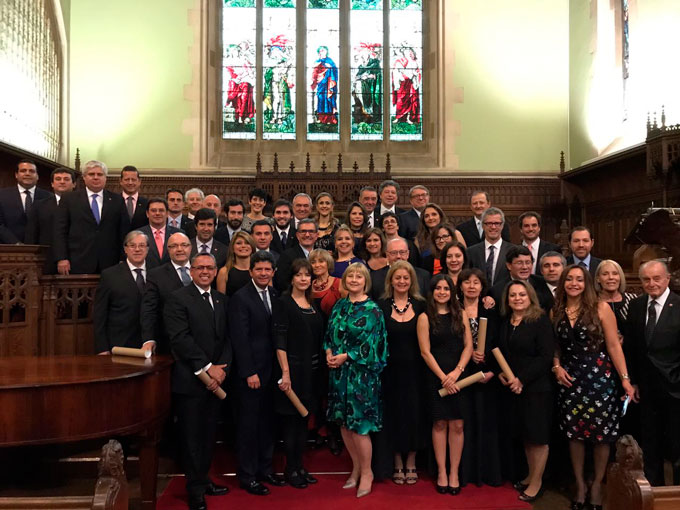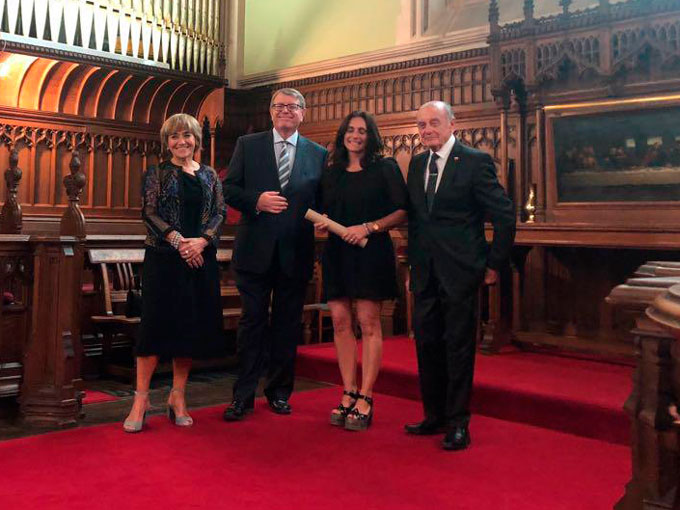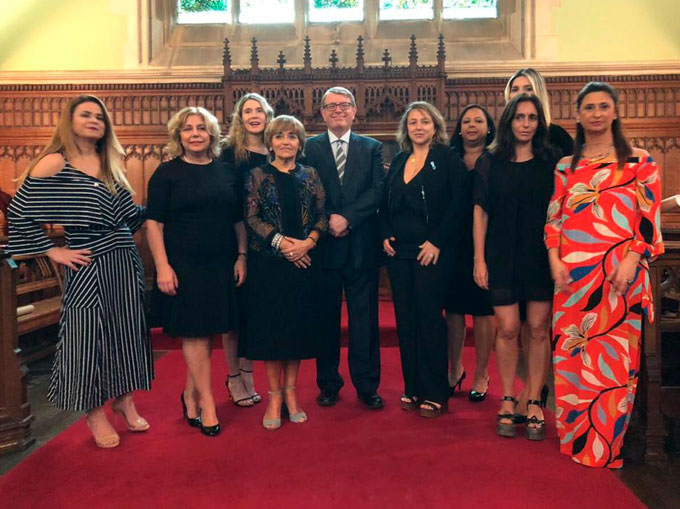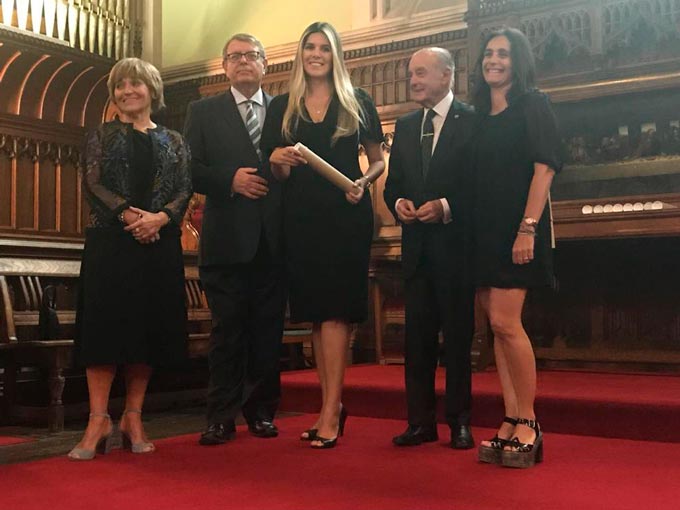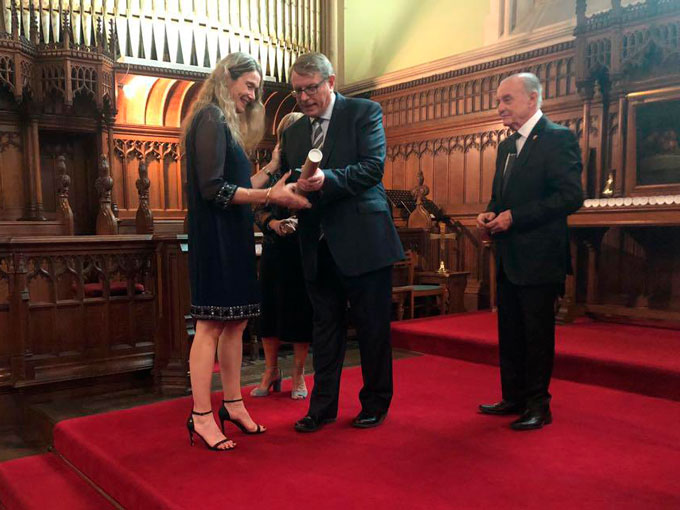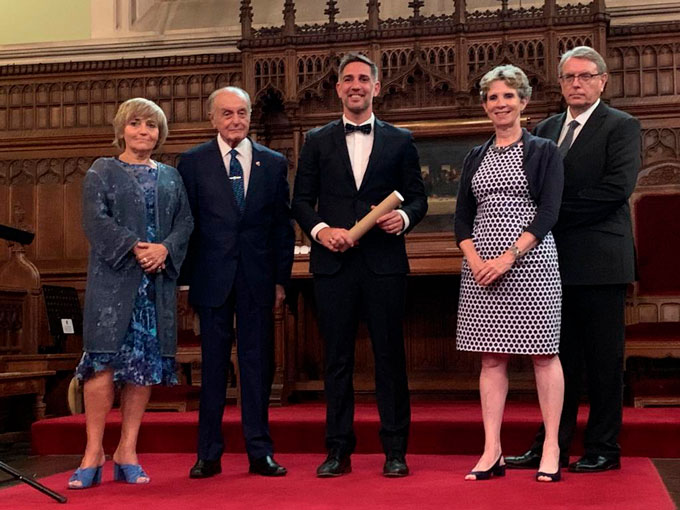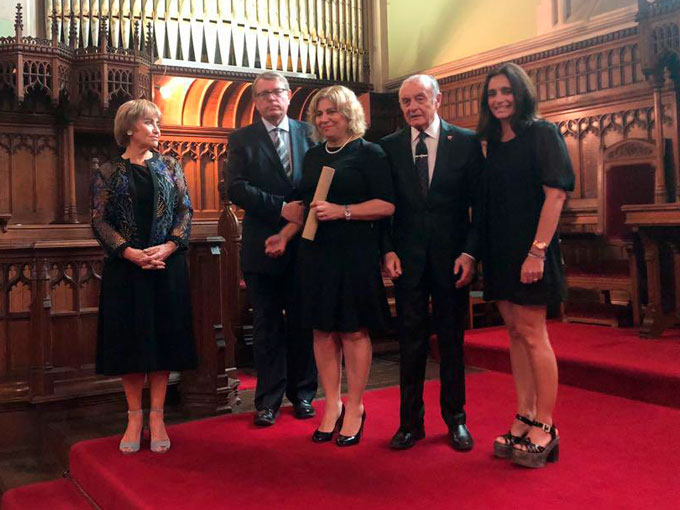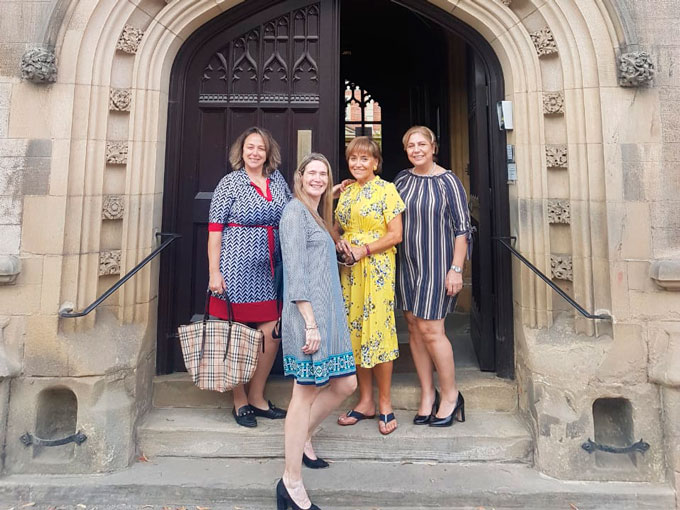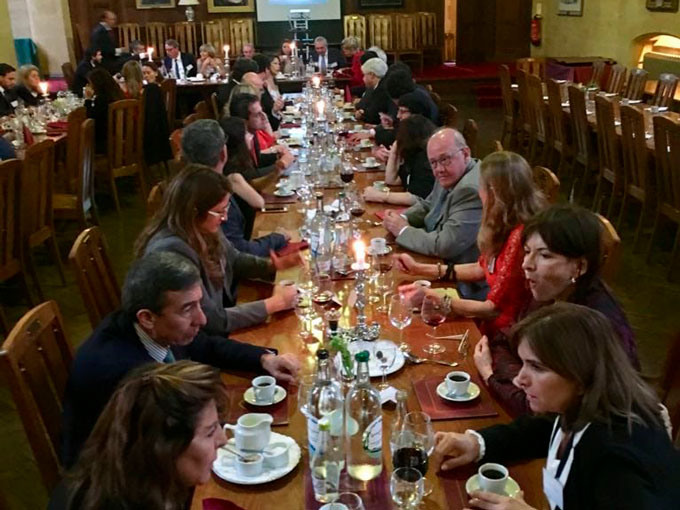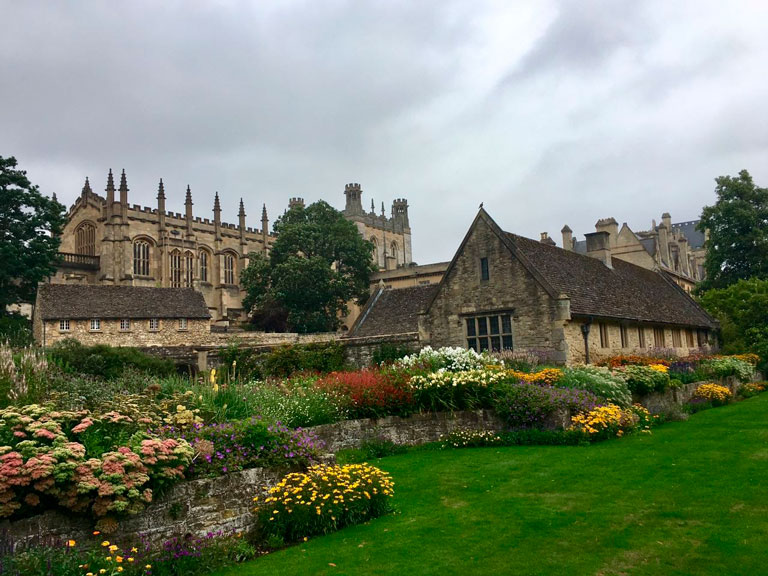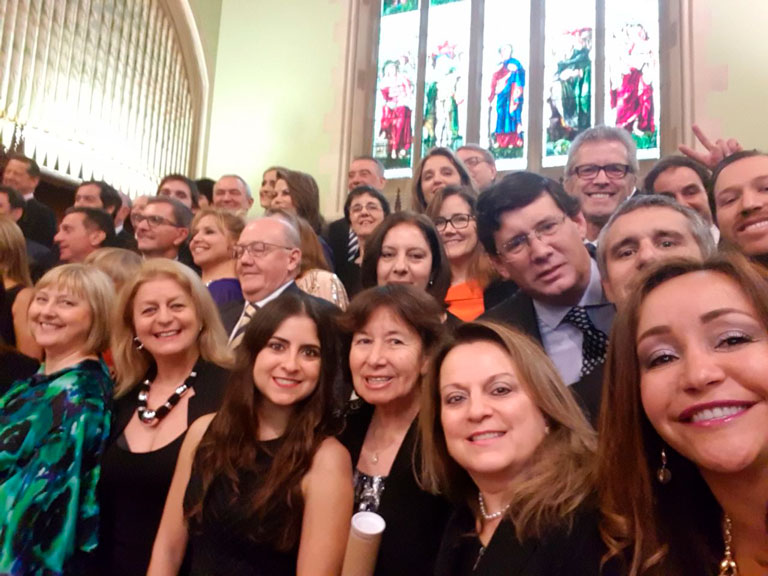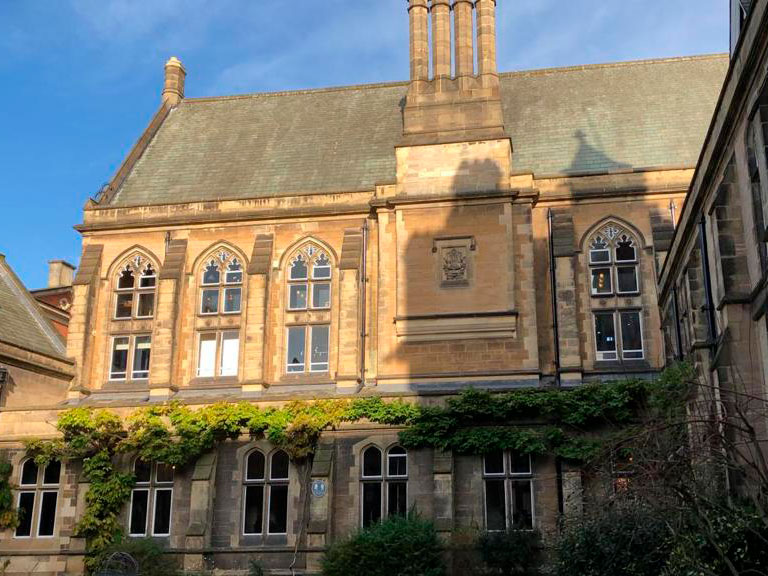X INTERNATIONAL COURSE FOR HEALTH CARE LEADERS
August, 2026 | Harris Manchester College, University of Oxford | United Kingdom
Directors: Prof. María Adela Contreras / Enrique Mario Schiavon MD, MHA
Academic Course Adviser: Prof. Pedro Delgado
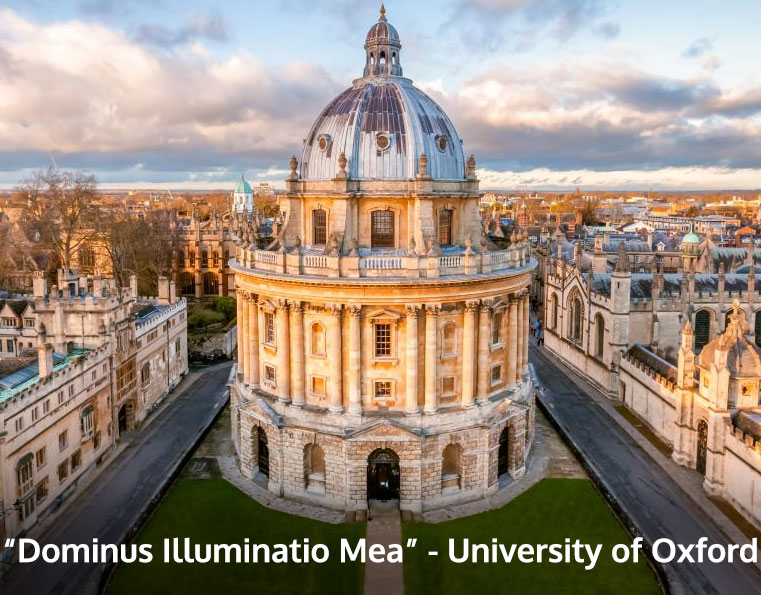
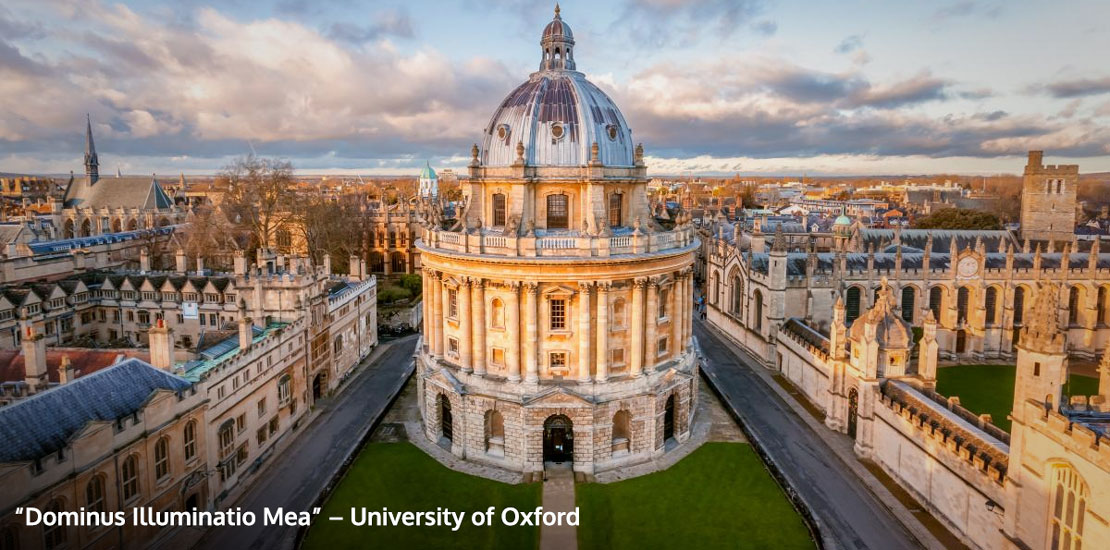
The University of Oxford is the oldest university in the English-speaking world and the world’s second oldest surviving university. While its exact founding date is unknown, there is evidence that teaching took place as far back as 1096.
Located in and around Oxford’s medieval city centre, the university comprises 44 colleges and halls, and over 100 libraries, making it the largest library system in the UK.
Students number around 22,000 in total, just over half of whom are undergraduates while over 40 per cent are international, representing 140 countries between them.
Called the "city of dreaming spires" by Victorian poet, Matthew Arnold, Oxford has the youngest population of any city in England and Wales: nearly a quarter of its residents are university students, which gives Oxford a noticeable buzz.
Oxford has an alumni network of over 250,000 individuals, including more than 120 Olympic medalists, 26 Nobel Prize winners, seven poets laureate, and over 30 modern world leaders (Bill Clinton, Aung San Suu Kyi, Indira Gandhi and 26 UK Prime Ministers, among them).
The university is associated with 11 winners of the Nobel Prize in chemistry, five in physics and 16 in medicine. Notable Oxford thinkers and scientists include Tim Berners-Lee, Stephen Hawking and Richard Dawkins. The actor Hugh Grant also went to Oxford, as did the writers Oscar Wilde, Graham Greene, Vikram Seth and Philip Pullman.
Oxford’s first international student, named Emo of Friesland, was enrolled in 1190, while the modern day university prides itself on having an ‘international character’ with connections to almost every country in the world and 40% of its faculty drawn from overseas.
As a modern, research-driven university, Oxford has numerous strengths but cites prowess in the sciences, having recently ranked number one in the world for medicine (Click to see ranking) (if its medical sciences division was a university in its own right, it would be the fourth largest in the UK) and among the top ten universities globally for life sciences, physical sciences, social sciences, and the arts and humanities.
BACKGROUND
A programme for Latin American healthcare leaders has been held in the UK most years for the last decade, with only the Covid pandemic interrupting these. The Director, since 2016, had been Prof. Bernard Crump, who passed away on Sunday August 25, 2024. He has been our partner and the most excellent teacher for our Alumni.
Most of our UK courses have been held at Harris Manchester College, University of Oxford; the University of Warwick has hosted on two occasions. This year have been admitted leaders from Latin American and the Middle East.
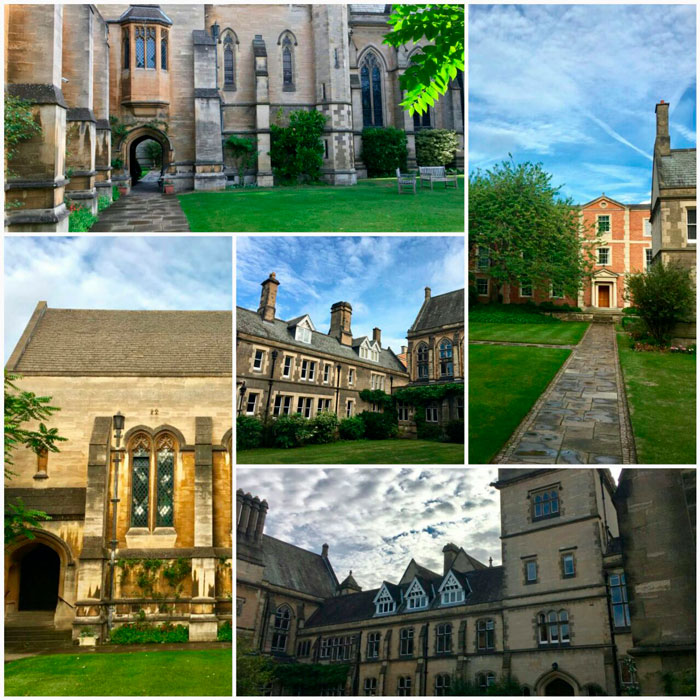
The programme typically begins at around 1600 on the Wednesday (in this case 27th August) allowing those who have flown in overnight to arrive and settle into their accommodation. We have three full days of programme content on Thursday, Friday and Saturday, finishing with an end of course ceremony on Saturday evening, with participants leaving on Sunday morning. Provisionally, on this occasion, we have planned to pause academic content at 1500 on Thursday so that the participants can visit another of Oxford’s historic Colleges which accepts visitors at this time.
We have simultaneous translation of all plenary sessions; so far this has been into Spanish alone. Whilst most attendees are knowledgeable of English, the translation can help both attendees and presenters with more technical content, and during Q&As etc.
The College is an historic building and provides a marvellous atmosphere for learning and for networking between participants. Participants can work in small groups in the garden if the weather permits. Our course is interactive, with sessions every day to discuss the issues of our Programme and bring to our classes the participants’ experiences.
PROGRAMME DIRECTORS
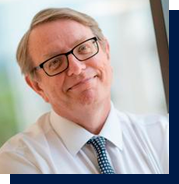
In Memoriam Emeritus Director:
Prof. Bernard Crump MD
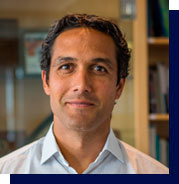
Academic Course Adviser: Prof. Pedro Delgado
Pedro leads IHI’s portfolio of work in Europe and IHI’s equity work outside of the US. He has led IHI's work over the years in three regions (Latin America, Europe, and Australasia) as well as the IHI Open School. Based in the United Kingdom, he has been a driving force in IHI’s global expansion. From work on improving children cancer care across 6 countries, to reducing C-sections and healthcare-acquired infections in Brazil and several Latin American countries, to improving early years education in Chile, to improving patient safety in Portugal and mental health in London. Mr. Delgado has led the key senior relationships, design and implementation of large-scale health system improvement efforts and networks globally. He coaches senior leaders and teams, and lectures extensively worldwide on large-scale change, patient safety, and quality improvement. He is an Instructor at the Harvard T.H. Chan School of Public Health, a Senior Atlantic Fellow of Health Equity. He is on the International Editorial Board of BMJ Leader, part of the IHI BMJ Governance Group and an Advisory Board member for the Health Foundation’s Q Network. Prior to joining IHI in 2010, he held roles in hospital management and large-scale improvement leadership in the UK, as well as working in mental health in Venezuela and the UK. In October 2019, Pedro was recognized with the Julia Lima Award by Einstein Hospital in Brazil for his contributions to patient safety and quality improvement in Latin America.
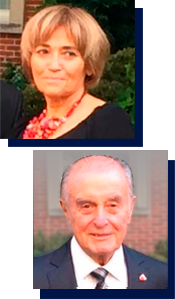
Directors: Dr. Enrique Mario Schiavon, MD, MHA y Prof. María Adela Contreras
En 2012 Prof. Contreras organized the first Latin American Health Care Course at the School of Medicine, Warwick University. Later, she and Dr. Enrique Mario Schiavon decided to establish a Course at the University of Oxford and the I Latin American Workshop has been held in 2016. For more than 30 years, Prof. Contreras and Dr. Schiavon has been working with the mission of improving the quality of health services for the Latin American population.
In 1997 they created the I Workshop for Latin American Health Care Leaders at Harvard University, and they have been the leaders of this Program for 25 years. In 1993, they have also established the first Master on Health Care Management in Argentina (Favaloro University and National University of Salta). They have organized more than a hundred international courses in the United States, Spain, Costa Rica, Brazil, Chile, Colombia and the United Kingdom.
FACULTY
Contact has been made with a number of faculty contributors who would make a very valuable input on some of these topics. These include:
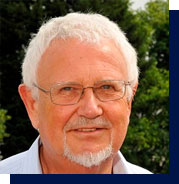
Prof. Michael Drummond
Mike is Professor of Health Economics. His particular field of interest is in the economic evaluation of health care treatments and programmes. He has undertaken evaluations in a wide range of medical fields including care of the elderly, neonatal intensive care, immunisation programmes, services for people with AIDS, eye health care and pharmaceuticals.
He is the author of two major textbooks and more than 700 scientific papers, has acted as a consultant to the World Health Organization and was Project Leader of a European Union Project on the Methodology of Economic Appraisal of Health Technology. He has also served on the Boards of Directors of the International Society of Technology Assessment in Health Care and the International Society for Pharmacoeconomics and Outcomes Research. He has been President of the International Society for Pharmacoeconomics and Outcomes Research. He is currently Co-Editor-in-Chief of Value in Health. In 2010 he was made a member of the Institute of Medicine of the National Academies in the USA.
Mike Drummond was the recipient of the Avedis Donabedian Award in recognition of lifetime achievement in the area of improving health outcomes (2004) and the John Eisenberg Award, in recognition of exemplary leadership in the practical application of medical decision-making research (2012). His recent projects relate to the conduct of economic evaluations and their use in health care decision making.
PLEASE TO KNOW ABOUT OUR FACULTY CHECK OUT THE 2025 PROGRAM:
INTRODUCTION TO THE 2025 PROGRAMME
Healthcare across the globe has to confront a number of common challenges; Which innovations should we support? Will digital innovation deliver the benefits expected? How will countries resource the growing costs and find the necessary workforce? In this programme we will learn about solutions that are being adopted and share experiences that can shape our response to these challenges.
Our plan to date for this year had been to spend time looking at some of the key Global Challenges facing health services. Loosely, we had seen this falling into four overall categories:
- Resources, including the key resources of Finance and Workforce, with a special time to discuss Innovation centred Funding in Health Care to advance UHC
- Digital Transformation, including the potential for Artificial Intelligence and Machine Learning as an enabler for better outcomes for patients, discussing the data impact for identifying and measuring efficiencies through data base decision making.
- Engagement, both of service users and citizens in the design of services, and of healthcare professionals, who are not always in tune with the strategic direction being followed by the managers of their organisations, and
- Complexity, as many countries, including the UK, move to more networked governance solutions for the organisation of their health and care services, with a stronger focus on collaboration of the public and private organizations, which can lead to tension with those accountable for individual parts of the system.
OUTLINE PROGRAMME
Given the focus on finance, Prof. Bernard Crump will lead some sessions on alternative approaches to healthcare finance. He has developed case studies on two of the most interesting alternatives; the funding of healthcare in Singapore and in the Netherlands, and these would lend themselves to a case study approach with some small group learning on the lessons, and on the potential for these to inspire alternative innovations.
Given the interest in Digital Transformation Prof. Bernard Crump has materials which could be very valuable, both in exploring the potential for digital but also in exploring why it is proving so difficult to deliver digital transformation at scale. Prof. Crump leads an MBA module on Digital Innovation for the Healthcare Services.
